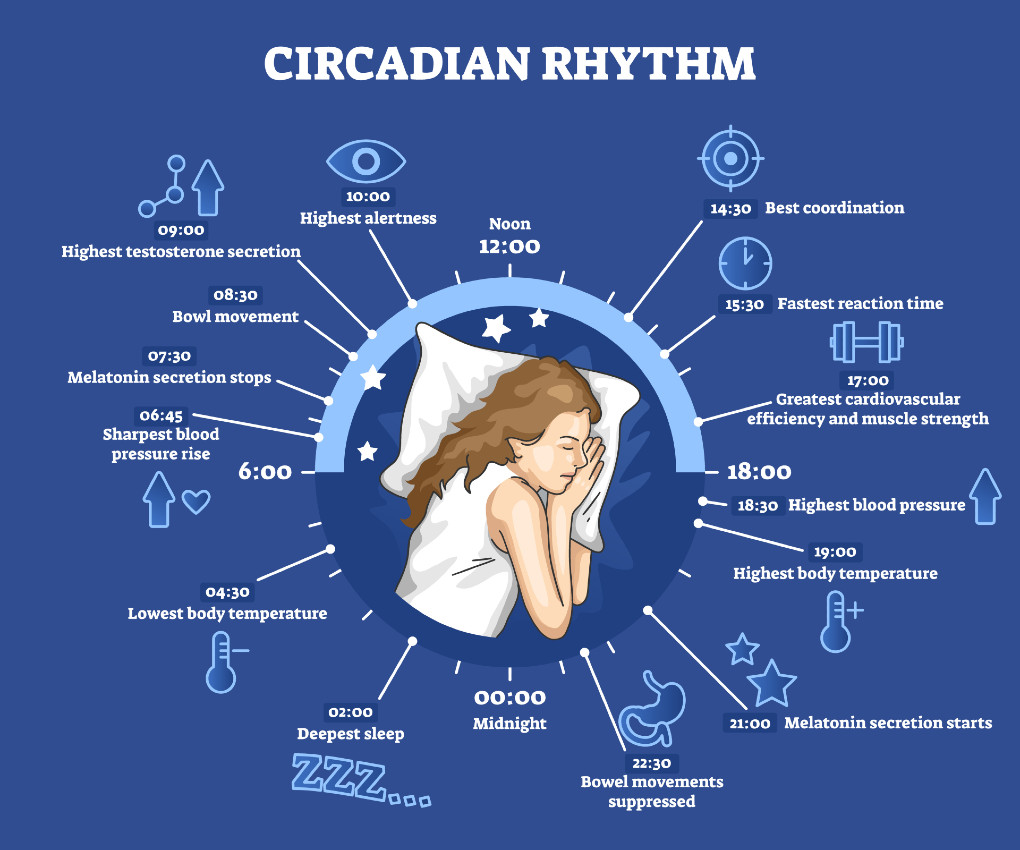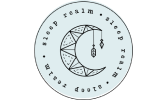What Is the Circadian Rhythm?
The rhythm that regulates the body’s natural wake/sleep cycle is called the circadian rhythm. These rhythms are mental, physical, and behavioral variations that follow a 24-hour cycle. Chronobiology is the study of circadian rhythms. These biological processes are linked primarily to daylight and dark and influence almost every living thing, including plants and microbes.
What Are Biological Clocks?
Biological clocks are organisms’ intrinsic scheduling mechanisms responsible for regulating the circadian cycle. They’re composed of particular molecules that interact with cells in the body. Almost every organ and tissue contain biological clocks. Scientists have distinguished similar genes in people, mice, flies, plants, fungi, and many other living critters that make the clocks’ molecular segments.
What Is the Master Clock?
The master clock is responsible for regulating all the biological clocks in living things, keeping everything synchronized and checked. For invertebrates and humans, the master clock comprises about 20,000 nerve cells (neurons) that build a structure called the suprachiasmatic nucleus, or SCN. The SCN resides somewhere in the brain called the hypothalamus and is responsible for receiving direct information from the eyes.
Does the Body Regulate Its Own Circadian Rhythms?
Yes, biological agents in your body generate circadian rhythms. In humans, some of the essential genes in this process are the Period and Cryptochrome genes. These gene codes build up in the cell’s nucleus in the nighttime and dwindle during the day. Tests in fruit flies reveal that these proteins help stimulate feelings of wakefulness and attentiveness, and sleepiness. However, outside factors also influence circadian rhythms. For example, exposure to daylight at a varying time of day can reset when the body activates Period and Cryptochrome genes.
The SCN regulates the generation of melatonin, the hormone that makes you sleepy. It collects information about incoming light from your eyes, which carry this information from the eyes to the brain. When light is scarce at night, the SCN tells the brain to produce more melatonin to get you in the mood.
How Do Circadian Rhythms Affect Health?
Circadian rhythms can affect essential functions in the body, such as:
- The release of hormones
- Eating habits and digestion
- Body temperature
What Factors Can Alter Circadian Rhythms?
Changes in the body and environment can make our circadian rhythms and the natural light/dark cycle out of sync. For example:
- Deviations or changes in specific genes can influence biological clocks.
- Shift work or jet lag can alter the light/dark cycle.
- Light from electronic devices at night can throw our biological clocks out of whack.
Though harmless, these changes can provoke sleep disorders. They may also lead to other chronic health complications like obesity, diabetes, bipolar disorder, depression, and many more.
Circadian Rhythms and Jet Lag
When you cross different time zones, your biological clock will be further from the local time. To help you visualize this, let’s say you fly east from San Diego to New York (a 3-hour time difference). If you wake up in New York at 8:00 a.m., your biological clock is still on West Coast time, so you feel the way you might at 5:00 a.m. Your biological clock will eventually reset, but it often takes a few days to adjust to the new time zone. Gaining time may be slightly more convenient and comfortable than losing time because the brain adapts differently in the two situations.
How to Maintain a Good Circadian Rhythm

While there is no way to have total control over our circadian rhythm, there are some healthy sleep measures you can take to entrain your 24-hour sleep cycles better.
- Seek out natural sunlight: Exposure to sunlight, especially early in the morning, helps strengthen the most vital circadian cue.
- Stick to a consistent schedule: Changing your bedtime or wake-up time can prevent your body’s ability to adjust to a steady circadian rhythm.
- Exercise daily: Physical activity during the day can make it easier to fall asleep at night.
- Ease off on the caffeine: Stimulants like caffeine can promote wakefulness and throw off the natural balance. Since everyone is different, if caffeine doesn’t make it difficult for you to fall asleep – lucky you. However, if you’re already having trouble sleeping, stay off the caffeine in the afternoon.
- Limit lighting in the bedroom: Artificial light exposure (cellphone, tablet, computer) before bedtime can hinder a healthy circadian rhythm. We recommend dimming the lights in your electronic devices or putting them down entirely before bedtime.
- Take short naps short: Taking long naps late in the afternoon can push back your rest and throw off your sleep schedule.
Takeaway
Your circadian rhythm is your body’s own way of maintaining its 24-hour body clock, helping you operate on a healthy sleep/wake cycle. Switching to a healthy, active lifestyle that allows for proper rest will help you maintain this critical component of your body. If you experience increased difficulties sleeping or excessive fatigue during the day, reach out to your doctor to find out how to realign with your circadian rhythm and get proper rest.



38 Replies to “Understanding Your Circadian Rhythm”